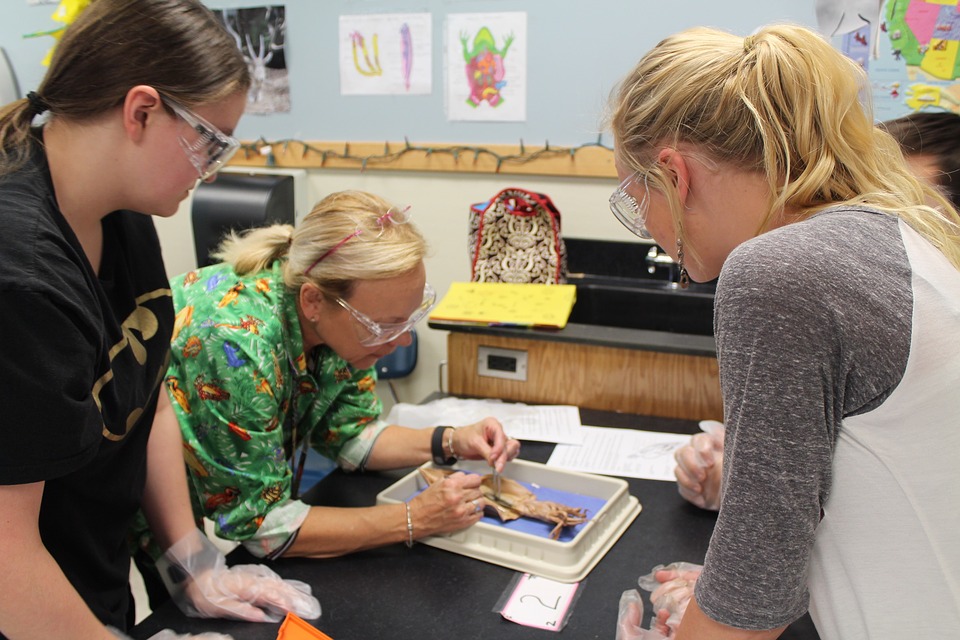
Getting your kids to be interested in learning Science may be an overwhelming task but it doesn’t have to be that way. There are a lot of fun activities you can do to spark their interest while grabbing the opportunity to learn with them. So to make it easier for you, here are 8 ways to make your kids interested in Science that you can follow.
-
Start From Your Home
Your home is the perfect place to nurture your child’s curious mind. You don’t always go the laboratory to teach your child about Science. You can look for things to discuss at home in line with your daily activities at home. You can experiment using your basic kitchen items and other household materials with guidance and ask them questions like “what do you think will happen after I do this?”. It could help your child develop their problem-solving skills and critical thinking skills. One way to experiment is by placing an ice cube on the counter and timing it if how long will it take to melt. You can also spark their ideas about science environment through nature or just your backyard garden where they can see plants and different insects. You can even have a science party for their birthday party, its unique and full of entertainment and sure to get your child and their friends interested in science.
-
Watch Movies Or Documentaries With Your Kids
Televisions and movies are great tools to get your child interested in learning Science. This could be in the form of documentaries, history or film. Make sure to check if it is age appropriate and also suitable to their learning abilities. There are a lot of channels like National Geographic channel, Discovery Channel and other shows on Netflix that you can choose from.
Another good way of learning is through apps. Your children can explore science through video games related to Science like puzzles or quizzes. You can ask your child’s teacher or search the web for recommendations.
-
Stimulate Learning Through Books And Toys
Stimulate your child’s brain as early as possible through toys and activity boards. During the infancy stage, their brain develops quickly through touch and play. Their curiosity stage should be supported by encouraging them to investigate their surroundings. As they grow older, you can provide them with building blocks with different colors and shapes to enhance their imagination and creativity. Puzzles and construction toys like legos can help them develop their problem-solving skills.
Scientific toys like Science kits or telescopes designed for grade schoolers are also a great way to spark their interest in Chemistry or Astronomy. Buying good science books that have sufficient pictures and charts can also help them learn more detailed information about Science.
-
Have Family Field Trips
Taking your children to the great outdoors can also help build their imagination better. Having hands-on learning makes them more interested in learning Science. It would be really cool and exciting to take them on field trips like a trip to the museum to learn about dinosaurs and fossils or maybe taking them to the zoo to see wild animals. Oceanariums are also cool to visit to let the children know about the sea animals and their ecosystem. You can also have a splash to the beach where you can collect seashells or find small crabs and fishes near the shore. If you want your child to be close to nature, you can go out camping and have a stargazing activity or identify plants and animals they see nearby. These activities don’t only help your children interested in science but also leaves a long lasting memory with you as a family.
-
Answer Their Questions
As your child grows, you will have more questions to answer. After all, curiosity is the basis of Science. Take your child’s curiosity as an opportunity for them to learn more about science. You can slowly interject science concepts and build your way to having a discussion about it. You can explain to them why things happen that way and let them look for answers they might have. An example would be seasonal changes like leaves falling out from trees or why does it snow. Your answer and listen depending on your child’s interest. Take time to learn something about their questions if they have too many and show them interesting facts about it to spark their interest more.
-
Play Games With Them
Board games are kind of old-school nowadays since the dawn of modern technology but it is a useful method to involve them in learning science. To enhance their strategic thinking, you can introduce them chess, or science bingo. There are a lot of samples online for you to check. You can also play science related games and introduce them some concepts about physics. Like a racing game or trains. Another is through the use of balloons or magnets. You can even make giant bubbles using the materials you have at home. The possibilities are endless. Your kids will surely have fun and would love to study science even more!
-
Help Them Build Stuff
A fun way to get them into learning science applications is by building simple things like birdhouses, or toy cars. This can spark their interest in becoming an engineer one day. You can also help them build their collections related to science where they can have a chance to develop their expertise.
-
Become a Science Citizen
There are organizations where you can join as a citizen of science and join projects on anything. Some activities involve bird watching or measuring light pollution to identifying different animal species. You can search “citizen science” and join these participating websites where its goal is to let people be involved in science projects that can benefit the world.
Conclusion
If you want your kid to be expert in science subjects like physics, chemistry or biology, you need to help them get interested in these subjects. If you are a particularly busy person, you can hire science tuition teachers to do the job (click here to find out more). By one way or other, you need to make sure your kids find the important science subjects interesting.


